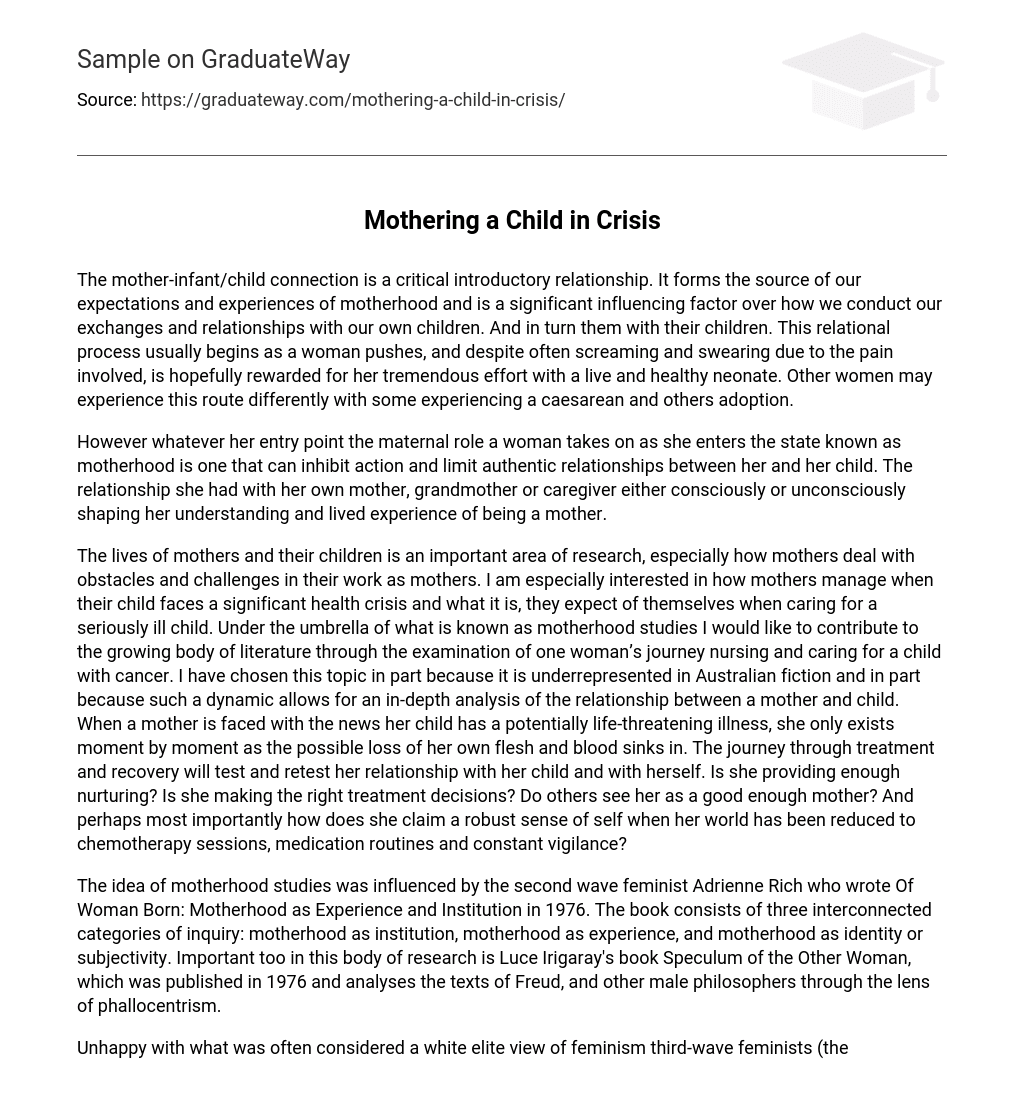The mother-infant/child connection is a critical introductory relationship. It forms the source of our expectations and experiences of motherhood and is a significant influencing factor over how we conduct our exchanges and relationships with our own children. And in turn them with their children. This relational process usually begins as a woman pushes, and despite often screaming and swearing due to the pain involved, is hopefully rewarded for her tremendous effort with a live and healthy neonate. Other women may experience this route differently with some experiencing a caesarean and others adoption.
However whatever her entry point the maternal role a woman takes on as she enters the state known as motherhood is one that can inhibit action and limit authentic relationships between her and her child. The relationship she had with her own mother, grandmother or caregiver either consciously or unconsciously shaping her understanding and lived experience of being a mother.
The lives of mothers and their children is an important area of research, especially how mothers deal with obstacles and challenges in their work as mothers. I am especially interested in how mothers manage when their child faces a significant health crisis and what it is, they expect of themselves when caring for a seriously ill child. Under the umbrella of what is known as motherhood studies I would like to contribute to the growing body of literature through the examination of one woman’s journey nursing and caring for a child with cancer. I have chosen this topic in part because it is underrepresented in Australian fiction and in part because such a dynamic allows for an in-depth analysis of the relationship between a mother and child. When a mother is faced with the news her child has a potentially life-threatening illness, she only exists moment by moment as the possible loss of her own flesh and blood sinks in. The journey through treatment and recovery will test and retest her relationship with her child and with herself. Is she providing enough nurturing? Is she making the right treatment decisions? Do others see her as a good enough mother? And perhaps most importantly how does she claim a robust sense of self when her world has been reduced to chemotherapy sessions, medication routines and constant vigilance?
The idea of motherhood studies was influenced by the second wave feminist Adrienne Rich who wrote Of Woman Born: Motherhood as Experience and Institution in 1976. The book consists of three interconnected categories of inquiry: motherhood as institution, motherhood as experience, and motherhood as identity or subjectivity. Important too in this body of research is Luce Irigaray’s book Speculum of the Other Woman, which was published in 1976 and analyses the texts of Freud, and other male philosophers through the lens of phallocentrism.
Unhappy with what was often considered a white elite view of feminism third-wave feminists (the term credited by Rebecca Walker), worked further to expose layers of oppression including race, class and gender. However, given the importance of the mother child bond there is still little research and writing on the importance of mother’s union with her own mother and its influences over her relationship with her child/ren.
In my book I plan to employ three different modes of investigations into the nature of gender, language, and identity, they are the fictional, the essayistic, and the poetic. I want to use my own personal experience as a form of feminist theory. To do this I plan to fictionalise my own personal experience of caring for a child with cancer because I believe I will be able to recognise I was not alone in the oppression and discrimination I faced nursing a child with a life-threatening illness. Furthermore, using my own account will have benefits because it will record personal details that may not be available in traditional historical texts. I also plan to have the main character’s mother also have nursed a child with cancer who tragically died. In this way the exploration of the mother daughter relationship between the two will not merely be intense but allow for the changes and expectations of mothering a child with cancer over throughout the decades from 1960’s to the 2010’s. The main character will therefore have lost a sibling to childhood cancer and then find herself in the same position as her mother facing mothering a child with a potentially life-threatening illness.
In summation the topic of the ‘mother’s connection with her own mother after the birth of an infant’ and subsequent experience of nursing a seriously ill child will be viewed through the lenses of feminist theory and will necessarily include historical, cultural, semiotic, philosophical and sociological understandings.





